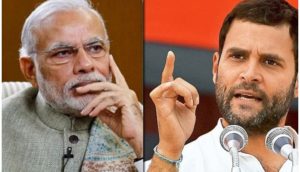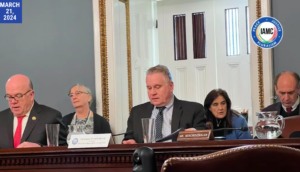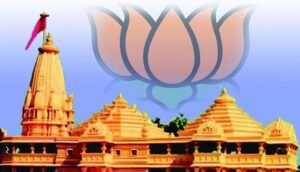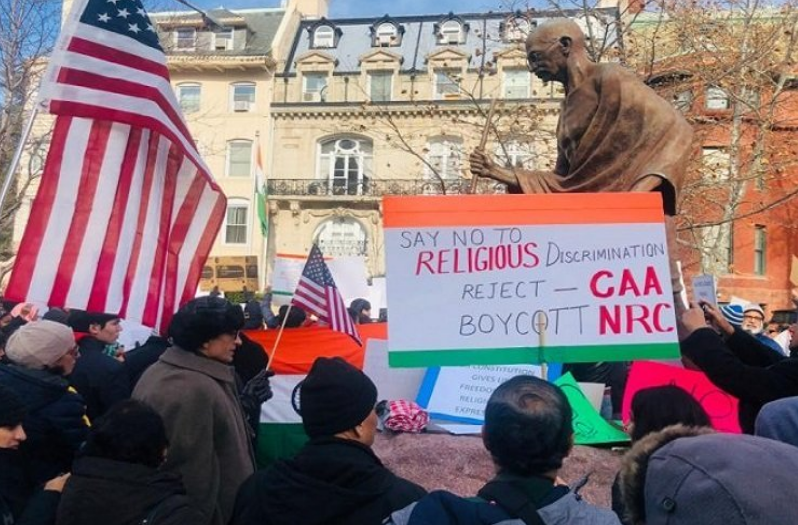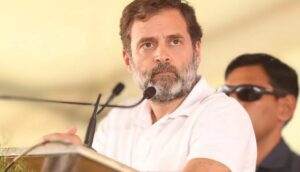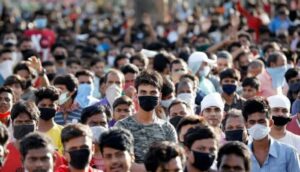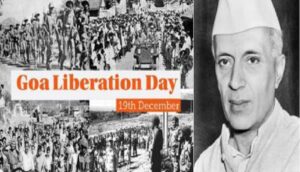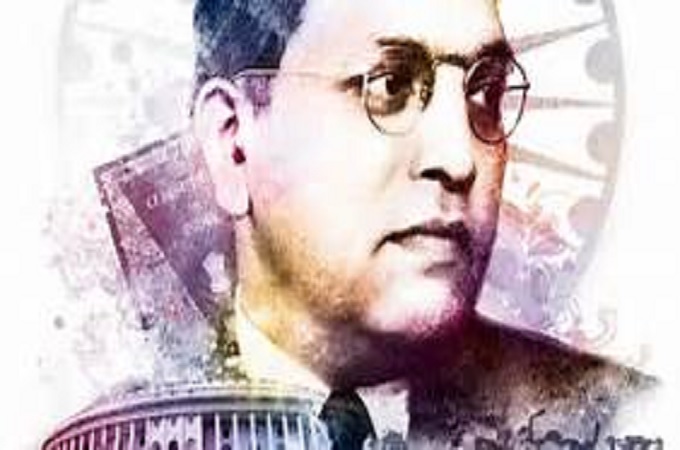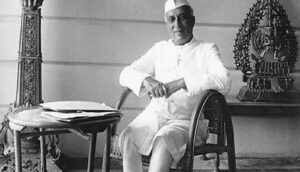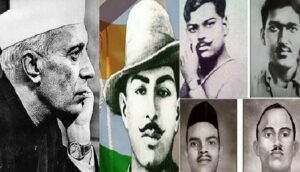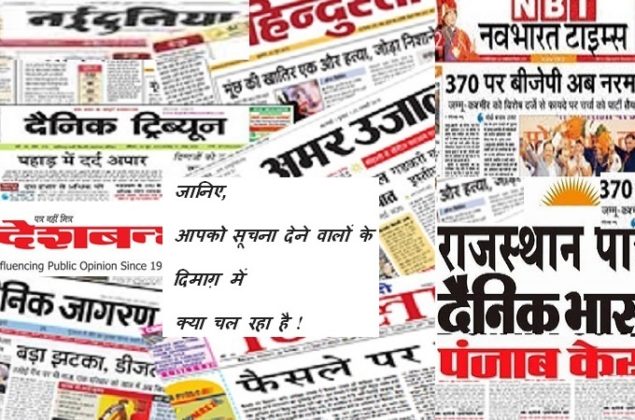
नवभारत टाइम्स
उन और इन इन का मिलन
नॉर्थ कोरिया के नेता किम जोंग उन अब अपने वादों पर अमल करते नजर आ रहे हैं। उन्होंने शांति कायम करने और विभिन्न देशों से अपने रिश्ते सुधारने की शुरुआत कर दी है। शुक्रवार को वह साउथ कोरिया पहुंचे और वहां के राष्ट्रपति मून जे इन से मुलाकात की। उन ऐसे पहले उत्तर कोरियाई शासक हैं, जिन्होंने 1950-53 के कोरियाई युद्ध के बाद दक्षिण कोरिया की धरती पर कदम रखा है। दोनों नेताओं की बात इससे पहले भी हुई है, लेकिन वह 11 साल पहले किसी तीसरे मुल्क में हुई थी। दोनों कोरियाई देशों के राष्ट्राध्यक्षों की इस मुलाकात पर पूरी दुनिया की नजर टिकी हुई थी। इसे इस क्षेत्र में शांति की स्थापना की दिशा में एक महत्वपूर्ण कदम माना जा रहा है। जल्द ही उन अमेरिकी राष्ट्रपति डॉनल्ड ट्रंप से भी मिलने वाले हैं। जून में उनकी वार्ता प्रस्तावित है। इस बातचीत में नॉर्थ कोरिया और अमेरिका के बीच कोई स्थायी संधि या कुछ अहम मुद्दों पर आपसी सहमति कायम हो जाए तो दुनिया राहत की सांस लेगी। खासकर इससे कोरियाई प्रायद्वीप की जनता को काफी लाभ पहुंचेगा। इससे नॉर्थ कोरिया में विकास की लहर शुरू हो सकेगी, जहां अभी अमेरिकी अगुआई में दुनिया के कई देशों के प्रतिबंध के चलते हालात बेहद खराब हैं। यह बात और है कि अमेरिका और नॉर्थ कोरिया में सब कुछ एक झटके में ठीक हो जाने की उम्मीद नजर नहीं आती। किम जोंग उन ने भले ही अपने न्यूक्लियर प्रोग्राम को बंद करने का दावा किया है, पर अमेरिका उसका पूर्ण नि:शस्त्रीकरण चाहता है। मतलब यह कि किम जोंग अपने अब तक के बनाए हुए सारे हथियार नष्ट कर दें और अपने परमाणु संयंत्रों में रेत भरवा दें। वाइट हाउस ने स्पष्ट कहा है कि जब तक नॉर्थ कोरिया परमाणु नि:शस्त्रीकरण नहीं करता, तब तक प्रतिबंध जारी रहेंगे। ट्रंप भी कह चुके हैं कि किम जोंग उन अगर अपने न्यूक्लियर प्रोग्राम के खिलाफ कोई ठोस कदम नहीं उठाते तो फिर मुलाकात का कोई मतलब नहीं है। सवाल है कि क्या किम जोंग उन इसके लिए तैयार हो जाएंगे/ यह मामला इतना सरल नहीं है और सब कुछ किम जोंग उन के हाथ में भी नहीं है। उनका कदम बहुत कुछ चीन के रुख पर निर्भर करेगा। चीन कभी नहीं चाहेगा कि नॉर्थ कोरिया बिल्कुल निहत्था हो जाए। वह उसकी हालत ईरान जैसी तो कभी नहीं होने देगा, क्योंकि दक्षिण चीन सागर में शक्ति संतुलन बनाए रखने के लिए उत्तर कोरिया की जरूरत उसे हमेशा रहेगी। चीन ने ही उन को वार्ता के लिए तैयार किया है और आगे की रणनीति भी वही तय करेगा। अब, जबकि चीन और अमेरिका में ट्रेड वॉर शुरू हो गया है तब उन को लेकर चीन का रवैया चुपचाप उनकी पीठ पर हाथ रखे रहने का ही होना चाहिए। इस महीन कूटनीति के ब्यौरे धीरे-धीरे खुलेंगे।
जनसत्ता
नक्सल पर नकेल
गुरुवार को नारायणपुर जिले में साठ माओवादियों के आत्मसमर्पण को छत्तीसगढ़ पुलिस की एक विशेष सफलता माना जाएगा। छत्तीसगढ़ की गिनती नक्सली हिंसा से सबसे ज्यादा प्रभावित राज्यों में होती रही है। लंबे समय से यहां पुलिस के अलावा सीआरपीएफ के जवान भी नक्सलियों से निपटने के लिए तैनात रहे हैं, और कई बार उन्हें इसकी भारी कीमत भी चुकानी पड़ी है। लेकिन अब लगता है कि बरसों से चल रहा उनका अभियान रंग ला रहा है और छत्तीसगढ़ धीरे-धीरे नक्सलियों से निजात पाने की तरफ बढ़ रहा है। नारायणपुर के अबूझमाड़ इलाके को माओवादियों का गढ़ माना जाता रहा है। अबूझमाड़ में साठ माओवादियों के आत्मसमर्पण से इस इलाके में उनकी कमर लगभग टूट गई है। यों जिन माओवादियों ने बस्तर के आला पुलिस अफसरों के सामने हथियार डाले और मुख्यधारा में लौटने का संकल्प लिया वे बिलकुल स्थानीय स्तर के कार्यकर्ता या लड़ाके थे, पर इनमें से चार ऐसे भी थे जिनके सिर पर एक-एक लाख रुपए का इनाम था। आत्मसमर्पण करने वाले माओवादियों में बीस महिलाएं थीं और तेरह नाबालिग थे। यह तथ्य इस इलाके में माओवादियों की रही गहरी पैठ की तरफ इशारा करता है।
पुलिस के मुताबिक, हथियार डालने के बाद इन लोगों ने माओवादियों की खोखली विचारधारा से मोहभंग होने की बात कही। पर यह एक अवसरजनित बयान अधिक लगता है। एक आदिवासी इलाके के नितांत गरीब लोग माओवादियों से जुड़ जाते हैं, तो इसके पीछे विचारधारा का आकर्षण कम, अपने ऊपर हो रहे जुल्म की प्रतिक्रिया अधिक होती है। इस सच को स्वीकार किए बगैर नक्सली समस्या के समाधान की मुकम्मल रणनीति नहीं बनाई जा सकती। माओवादियों के आत्मसमर्पण के पीछे विचारधारा से कथित मोहभंग के बजाय शायद सुरक्षा बलों की कार्रवाई का दबाव अधिक रहा होगा।
नक्सलियों को हाल में महाराष्ट्र और छत्तीसगढ़ में पुलिस के साथ हुई मुठभेड़ों से जबर्दस्त झटके लगे हैं। बीते रविवार को ही पैंतीस नक्सली महाराष्ट्र के गढ़चिरौली जिले में हुई मुठभेड़ में मारे गए। तेलंगाना, छत्तीसगढ़ और महाराष्ट्र की पुलिस और सीआरपीएफ के साझा अभियानों ने काफी संख्या में नक्सलियों का सफाया किया है। शुक्रवार को भी छत्तीसगढ़ के बीजापुर जिले में तेलंगाना पुलिस के नक्सल-रोधी दस्ते ग्रेहाउंड और छत्तीसगढ़ पुलिस की साझा कार्रवाई में सात नक्सली मारे गए। अंतर-राज्यीय तालमेल और सहयोग तथा खुफिया सूचनाओं का आदान-प्रदान इन कार्रवाइयों की कामयाबी का अहम पहलू है।
इन घटनाओं से जाहिर है कि छत्तीसगढ़ पुलिस, कार्रवाई और आत्मसमर्पण की दोहरी नीति पर चल रही है। इसे कारगर बनाने के लिए उसे यह भी देखना होगा कि आत्मसमर्पण करने वालों को राहत और पुनर्वास के वे सभी लाभ मिलें जो राज्य सरकार ने उनके लिए घोषित कर रखे हैं। अच्छा होगा कि सरकार के स्तर पर इसका संज्ञान लिया जाए। दूसरा तकाजा यह है कि राज्य की पुलिस स्थानीय लोगों का भरोसा अर्जित करने के और प्रयास करे। अमूमन पुलिस से लोग भय खाते हैं। आदिवासी इलाकों में यह हकीकत और भी कड़वी है।
पुलिस के अलावा वन विभाग से भी उनका खौफ का ही रिश्ता होता है। ऐसे में, नक्सल विरोधी अभियानों में दूरदराज में बसे लोगों का सहयोग पाना पुलिस के लिए अकसर मुश्किल होता है। दूसरी तरफ नक्सली आदिवासियों के बीच अपनी पैठ बनाने में कोई कसर नहीं छोड़ते। अगर सरकार यह सोचती है कि जो लोग गुमराह होकर माओवादियों के प्रभाव में आ गए हैं वे राह बदलें और मुख्यधारा की राह पकड़ें, तो इसके लिए भी पुलिस सुधार जरूरी है।
हिंदुस्तान
राजनय की जीत
यह तनाव पर कूटनीतिक प्रयासों की जीत का दिन था। बीते शुक्रवार को जो हुआ, उसे एशिया ही नहीं, पूरी दुनिया में लंबे समय तक याद रखा जाएगा। दो अलग-अलग जगहों पर दो शासनाध्यक्षों ने सीमा पार की, और रिश्तों पर जमी बर्फ पिघलने लगी। भारतीय प्रधानमंत्री नरेंद्र मोदी जब हिमालय पर्वत शृंखला को पार करके चीन पहुंचे, तो वे सारी आशंकाएं एकाएक ध्वस्त होने लगीं, जो पिछले कुछ समय से दोनों देशों के बीच तनाव के पारे को अचानक ही बढ़ाने लगी थीं। हालांकि चीन के सर्वशक्तिशाली नेता शी जिर्नंपग से उनकी मुलाकात अनौपचारिक है और उसका कोई पहले से तैयार एजेंडा नहीं है, इसलिए इस यात्रा के ठोस नतीजे क्या होंगे, यह अभी साफ-साफ नहीं कहा जा सकता। लेकिन उम्मीद यही बांधी जा रही है कि दोनों नेताओं की इस मुलाकात से जो आपसी समझ-बूझ बनेगी, वह हर कुछ समय बाद खडे़ हो जाने वाले बेवजह के तनावों का रास्ता रोकने में काफी काम आ सकती है। तनाव जितने भी और जैसे भी रहे हों, दोनों देशों को इस मोड़ पर पहुंचना भी था। भारत और चीन, दोनों ही सभ्य, परिपक्व और जिम्मेदार माने जाने वाले देश हैं, इसलिए वे आपसी तनावों को मिल-बैठकर एक साथ सुलझाने में सक्षम भी हैं। लेकिन यह बात इतने ही अधिकारपूर्वक उत्तर कोरिया के बारे में नहीं कही जा सकती। इसलिए शुक्रवार को जब वहां के नेता किम जोंग-उन पैदल चलते हुए सीमा पार करके दक्षिण कोरिया पहुंचे और वहां के नेता मून जे-इन से मुलाकात की, तो यह एक ऐसा दृश्य था, जिसकी कुछ सप्ताह पहले तक कोई कल्पना भी नहीं कर सकता था। एक तो यह असंभव सी बात थी और दूसरे इसमें एक नाटकीयता भी थी, जिसके कारण पूरी दुनिया की नजरें इस पर लगी रहीं।
मोदी और जिनपिंग की मुलाकात के मुकाबले किम और मून की मुलाकात में किंतु-परंतु ज्यादा थे और अभी बने हुए भी हैं, इसलिए यह मसला अगले कुछ दिनों तक चर्चा में छाया रहेगा। हालांकि दोनों कोरिया के नेताओं की इस मुलाकात के कई अर्थ हैं, लेकिन इसकी सफलता बहुत कुछ अमेरिकी राष्ट्रपति डोनाल्ड ट्रंप और किम जोंग-उन की मुलाकात पर निर्भर करेगी। दरअसल, इस समय दोनों कोरिया के बीच जो कुछ भी चल रहा है, ट्रंप और किम की मुलाकात की पूर्व-पीठिका है। अमेरिका और उत्तर कोरिया के बीच का जो समीकरण है, उससे कहीं ज्यादा जटिल रिश्ते दोनों कोरिया के हैं, जिसमें उनका समान इतिहास तो है ही, पिछले कुछ दशक का वैमनस्य भी जुड़ा है। सब कुछ ठीक चला, तो उत्तर कोरिया दुनिया में शांति का एक नया आश्वासन बन सकता है।
बेशक, भारत और चीन के रिश्तों में तमाम समस्याओं के बावजूद न तो इतनी जटिलता है और न ही उम्मीद कभी असंभव सी दिखने वाली चीज रही है। लेकिन कल जो शुक्रवार बीता, उसने बता दिया कि राजनय की बुद्धिमानी भरी गर्मजोशी उन तमाम अभियानों और खींचतान पर भारी पड़ती है, जो देशों के बीच का तापमान बेवजह ही बढ़ाते रहते हैं। अभी हमें पता नहीं है कि इन मुलाकातों के नतीजे क्या निकलेंगे, और जिस बदलाव की उम्मीद हम बांध रहे हैं, वह कितना होगा और कहां तक जाएगा? शायद यह मुद्दा है भी नहीं। असल बात यह है कि आगे बढ़ने का सभ्य तरीका यही है कि दुनिया भर के नेता अपनी बंदूकों में बारूद भरने की बजाय साथ आएं और बात करें।
दैनिक भास्कर
मोदी और शी जिनपिंग की अनौपचारिक चर्चा के मायने
प्रधानमंत्री नरेंद्र मोदी के दो दिवसीय चीन दौरे में अनौपचारिकता के शिष्टाचार में व्यावहारिक राजनय का तत्व छुपा हुआ है। इसलिए अगर हम ‘पहली बार मोदी’ के जुमले से हटकर इसका विश्लेषण करेंगे तो ज्यादा बातें समझ में आएंगी। अगर चीन में माओ त्से तुंग के बाद उभरे सबसे शक्तिशाली नेता शी जिनपिंग मोदी के साथ राजधानी बीजिंग की बजाय हुबेई प्रांत की राजधानी बुहान में मुलाकात कर रहे हैं तो इसमें भारत को विशेष दर्जा नहीं विशेष सुविधा और सद्भावना प्रदान करने का भाव है। जब भी अनौपचारिक बैठकें होती हैं तो उन पर मीडिया और अंतरराष्ट्रीय राजनयिकों की निगाहें वैसी नहीं गड़ी होतीं जैसी कि औपचारिक बैठकों पर। अनौपचारिक बैठकों के बाद प्रेस कॉन्फ्रेंस की मजबूरी भी नहीं जुड़ी होती और अनौपचारिक बैठक के माध्यम से आगे की औपचारिक बैठक की बेहतर तैयारी की जा सकती है। संदेश यह है कि भारत ने स्वीकार कर लिया है कि वह चीन के साथ कड़ाई से पेश आकर कुछ हासिल नहीं कर सकता। उसे चीन के पास छोटा भाई बनकर ही जाना होगा और उस रिश्ते के लिए चीन ने भी गुंजाइश पैदा की है। प्रधानमंत्री मोदी की आक्रामक विदेश नीति का बहुत उत्साहवर्धक परिणाम हासिल नहीं हो सका है। मोदी इससे पहले तीन बार चीन का दौरा कर चुके हैं और 11 बार अंतरराष्ट्रीय मंचों पर शी से मिल चुके हैं। शी ने भी भारत का दौरा किया था और उनके स्वागत में मोदी ने पलक पांवड़े बिछा दिए थे। इसके बावजूद चीन डोकलाम में 73 दिनों तक जमा बैठा रहा। चीन ने न तो ‘न्यूक्लीयर सप्लायर्स ग्रुप’ में भारत को सदस्यता दिए जाने का समर्थन किया और न ही मसूद अजहर को आतंकी मानने को तैयार हुआ। उसकी ‘वन बेल्ट वन रोड’ की योजना भी कश्मीर से गुजरती हुई भारत की सम्प्रभुता को चुनौती दे रही है। इन सारे अनुभवों से सीख लेते हुए मोदी और शी ने जो अनौपचारिक पहल की है उसके पीछे काफी औपचारिक मेहनत की गई है। जून के महीने में दोनों नेताओं के बीच शंघाई सहयोग संगठन की शिखर वार्ता में भी भेंट होनी है। उम्मीद की जानी चाहिए कि शी और मोदी की यह मुलाकात 1988 में ली पेंग के आमंत्रण पर हुई राजीव गांधी के चीन दौरे और उनकी तंग श्याओ फिंग से मुलाकात जैसी सार्थक ही नहीं उसे और आगे बढ़ाने वाली होगी
दैनिक जागरण
नक्सलियों पर नियंत्रण
छत्तीसगढ़ के बीजापुर में आठ नक्सलियों को मार गिराने में मिली सफलता इसलिए कहीं अधिक उल्लेखनीय है, क्योंकि इसके पहले पड़ोसी राज्य महाराष्ट्र के गढ़चिरौली में करीब 40 नक्सली ढेर कर दिए गए थे। इनमें दो तथाकथित इनामी डिवीजनल कमांडर भी थे। एक सप्ताह में करीब 50 नक्सलियों को मारा जाना यह बताता है कि पुलिस एवं सुरक्षा बलों ने नक्सली संगठनों पर अपना शिकंजा और कस दिया है। बीजापुर में नक्सलियों से हुई मुठभेड़ में खास बात यह रही कि यह छत्तीसगढ़ पुलिस और तेलंगाना की कमांडो फोर्स का साझा अभियान था। नक्सलियों पर लगाम लगाने के मामले यह आवश्यक ही नहीं, अनिवार्य है कि नक्सल प्रभावित राज्यों की पुलिस, उनकी कमांडो फोर्स और अर्धसैनिक बलों में हर स्तर पर तालमेल देखने को मिले। यह इसलिए अनिवार्य है, क्योंकि नक्सली एक राज्य में वारदात करने के बाद दूसरे राज्य की सीमा में प्रवेश कर जाते हैं। जब तक संबंधित राज्यों की पुलिस में संवाद-संपर्क होता है और उनके बीच साझा रणनीति बनती है तब तक वे छिपने में सफल हो जाते हैं। सच तो यह है कि नक्सली संगठन इसीलिए पुलिस और सुरक्षा बलों को चकमा देने में सफल रहते हैं, क्योंकि जिन इलाकों में वे सक्रिय हैं वहां की सीमाएं कई राज्यों से मिलती हैं। छत्तीसगढ़ में नक्सली इसीलिए अपेक्षाकृत मजबूत नजर आते हैं, क्योंकि उसकी सीमा नक्सली संगठनों की गतिविधियों से ग्रस्त आंध्र, तेलंगाना, झारखंड आदि से भी मिलती हैं। 1इस पर हैरत नहीं कि बीजापुर में मारे गए नक्सलियों से बड़ी मात्र हथियार और विस्फोटक सामग्री मिली। हथियारों का ऐसा ही जखीरा गढ़चिरौली में मारे गए नक्सलियों से भी मिला था। अगर नक्सलियों के पास से एके-47 राइफल और राकेट लांचर तक मिल रहे हैं तो इसका मतलब है कि उन तक हथियारों की आपूर्ति अभी भी आसानी से हो रही है। आतंरिक सुरक्षा के लिए यह बिल्कुल भी ठीक नहीं कि नक्सली संगठन आधुनिक हथियार आसानी के साथ हासिल करने में समर्थ बने रहें। इसकी तह तक जाने की सख्त जरूरत है कि नक्सलियों को आधुनिक हथियार और विस्फोटक कहां से मिल रहे हैं? बीजापुर और गढ़चिरौली में जो तमाम नक्सली मारे गए उनमें कई महिलाएं भी थीं। नक्सली संगठनों में हथियारबंद महिलाओं की भागीदारी बढ़ना कोई शुभ संकेत नहीं। नि:संदेह गढ़चिरौली और बीजापुर में मिली सफलता के बाद नक्सलियों के सफाए में लगे सुरक्षा बल अपनी पीठ थपथपा सकते हैं, लेकिन सरकारों को यह देखना होगा कि अपने इतने अधिक साथियों को खोने के बाद नक्सली नए सिरे से अपनी ताकत जुटाने का काम न करने पाएं। अगर नक्सली इन मुठभेड़ों के बाद सरकारों और सुरक्षा बलों के खिलाफ माहौल बनाने में कामयाब रहते हैं तो इससे उन पर निर्णायक तौर पर लगाम लगाने में और देर हो सकती है, जबकि जरूरत इसकी है कि नक्सलवाद के ताबूत में आखिरी कील ठोंकने का काम किया जाए। इसके लिए खुफिया तंत्र को मजबूत करने के साथ ही पुलिस के बीच आपसी तालमेल बढ़ाना होगा। इसके अतिरिक्त सरकारों को उन लोगों तक अपनी पहुंच बढ़ाकर अपने भरोसे में भी लेना होगा जो नक्सलियों से हमदर्दी रखते हैं अथवा यह मानते हैं कि वे ही उनके हितैषी हैं।
The Times of India
Beyond the Nation
Visiting America, French President Emmanuel Macron got along just fine with President Donald Trump. But his joint address to Congress could only have left Trump style nationalists – not necessarily confined to America – reeling. He delivered a ringing defence of values that the Trump establishment runs down, from global cooperation and multilateralism to liberty, tolerance and equal rights. He pointed out the dangers of a narrow nationalism based on anger, isolation and fear. “We will not let the rampaging work of extreme nationalism shake a world full of hopes for greater prosperity,” he told his host.
Nations are imagined communities. While a love of one’s country can prompt public service and commitment to one’s fellow citizens, it can also descend into blood-and-soil belligerence. A populist and often authoritarian form of nationalism has swept the world from China to Hungary and Austria, Turkey and India. Macron outlined a more constructive vision, one that takes responsibility for the planet, where countries collaborate and prosper. He spoke of climate change, reminding Americans there is no Planet B, that it is essential to act in concert rather than pull in one’s own selfish direction.
Macron also made a strong case for globalisation and its benefits, at a time when the US and other nations have resorted to protectionism and trade wars. “We should negotiate through the WTO. We wrote these rules, we should follow them.” That sense of global responsibility and multilateral obligation also came through in his mention of Iran, and about honouring the deal they jointly signed. Nationalist leaders often summon up a sense of external threat and internal weakness to bolster their own position. But their countries do not gain from this attitude. It was refreshing to see a world leader make a sober case for greater openness to the world, for trading, cooperating and mingling. May Macron’s tribe increase.
The Indian Express
Bloody Tracks
In a country where a good education is the foremost aspiration, it is ironic that a completely avoidable rail accident which killed 13 schoolchildren is regarded as a tragedy, and not an outrage. The school van which was rammed by the Gorakhpur-bound passenger train at an unmanned crossing was overloaded, did not have number plates, and was operated by an unrecognised institution. Its driver appears to have been underage and habitually drove while wearing headphones. Apparently, he ignored a warning from the “gate mitra” at the crossing. Indian parents are prepared to invest whatever it takes to secure a good future for their children, but they cannot keep them safe until they get there. That is the larger outrage that this accident exposes.
The failures are at multiple levels. The parents of the victims had demanded a manned level crossing after an accident in 2016, but nothing came of it. Now, in response to the accident with the van, the railway ministry has rolled forward the deadline for manning all crossings, chalked out in the 2017 Budget, from March 2020 to September this year. The parents were also dissatisfied with the driver, but could do nothing because the transport was operated by the school. And it took a colossal accident to draw the attention of the Uttar Pradesh authorities to the school, which turned out to be unrecognised. A school which is preferred by parents over government institutions, possibly due to lack of choice, does not actually belong in the educational system.
While the railways ministry has responded by rolling forward the deadline for manning all crossings, the need for urgency in this matter should have been realised long ago. Derailments, the second-biggest cause of rail accidents, have been declining over the last decade, but the volume of accidents at unmanned railway crossings — which accounts for the majority — has not been falling in proportion. An urgent intervention was clearly required here. Pending the manning of all crossings, warning alarms actuated by approaching trains should have been implemented. Accounting for all categories of accidents, the Indian Railways retain the dubious distinction of being the world’s most unsafe network. The baseline remains at over 100 accidents per year, which is at least 20 times over a reasonably acceptable rate. This is despite the existence of a forensic Commission of Railway Safety since 1961. Last year, the World Bank responded to the extraordinary rate of accidents with a list of suggestions, which included high-visibility engines, clearly marked level crossings and, significantly, a separate rail safety regulator. The fact that even such basic international norms are not available in India reflects poorly on our commitment to safety. If there is no outrage, there will be tragedies.
The New Indian Express
Why China Doesn’t Worry about Mongol-India Ties
External Affairs Minister Sushma Swaraj’s visit to Mongolia April 25-26 immediately after attending the Shanghai Cooperation Organisation foreign ministers’ meeting in China is significant for many reasons. One, this is the first visit by an Indian foreign minister to the landlocked nation in 42 years, after Y B Chavan’s 1976 visit. In May 2015, Narendra Modi became the first Indian PM to visit the country, again after a visit to China.
During that visit, he invoked ancient ties and Buddhist connections, and pledged $1 billion in a line of credit to the country sandwiched between Russia and China. Beijing, which sees Mongolia as part of its strategic backyard, watched warily. Many Indian strategists exulted, arguing India was sending out a not-so-subtle message that if Beijing got involved in India’s backyard—read Nepal and Arunachal—India could do the same through Mongolia.
In November 2016, when Mongolia defied Beijing’s warnings and allowed the Dalai Lama to visit the country on his ninth such trip, China imposed a crippling blockade, forcing Ulaanbaatar to seek support from India. Chinese editorials warned Mongolia of dire consequences for seeking financial help from India. When India offered nothing but platitudes, Ulaanbaatar pledged never to invite the Tibetan leader again.
Now, Swaraj, who co-chaired the 6th Session of the Indian-Mongolia Joint Committee on Cooperation, again invoked Buddhism and ancient ties with the country that was home to Genghis Khan. She pledged to ramp up engagement, and reviewed the progress in on-going collaborative projects, including the refinery selected by Mongolia for implementation with the $1 billion line of credit. This trip again comes at a time when India and China are trying to bring their ties back on an even keel after the Doklam standoff last year, with Modi and Chinese President Xi Jinping holding an “informal” summit in Wuhan. But this time, as a Chinese editorial.
The Telegraph
Headed in A New Direction
Forty eight years ago, at the World Cup in 1970, an agile, acrobatic Gordon Banks had palmed off a header from the legendary Brazilian footballer, Pelé. Even after all these years, wide-eyed fans, mostly supporters of English football, insist – understandably so – that this was the ‘greatest ever save made in the history of the tournament’. The memory of the diving Mr Banks has endured. But does the great man himself, Pelé, remember this slice of sporting history? The question is neither irrelevant nor flippant. Pelé, as mentioned earlier, had headed the ball almost past Mr Banks. Researchers in a medical college in New York have now claimed that footballers who head the ball frequently – the Brazilian superstar must have done this on countless occasions while training or on the pitch – are likely to suffer from poor working memory. That is not all. The higher the frequency of heading, says the research, the poorer the scores of the players in psychomotor speed and in tasks that demand attention. The findings complement another set of data – these were published by a research team from Scotland – that hinted at a not-so-tenuous link between heading and long-term brain impairment.
Contact sports like football have, over the years, carried a modicum of physical risk for the players. Indeed, injuries have ended many a promising career. On some occasions, on-field collisions have even snuffed out lives; such a tragic fate had befallen a Brazilian footballer playing in India some years ago. It is thus heartening to come across medical initiatives that seek to study the relationship of certain kinds of sporting activities, such as heading in football, with the overall well being of sportsmen. There is a case to argue that this kind of research, when the results are convincing, must be taken to its logical conclusion. This implies, in essence, that the authorities that are invested with the power to govern the rules of the game must be open to amending the regulations. A beginning has already been made in this context in the United States of America where a ban on heading is, at the moment, in place for very young players. The new rule, arguably, has not diminished the sport in the public eye.
The element of perception holds the key when it comes to changing rules in sport. Changing public perception can contribute to stronger demands to make sports safer, thereby easing the introduction of a new set of laws. Such a transition will also be premised on the demolishment of some hoary footballing myths. For instance, Pelé’s prowess in heading has always been cited as evidence to argue that he is a greater player than Diego Maradona, who, perhaps aware of his shorter stature, had used his hand instead of his head to get past an English goalkeeper on one (in)famous occasion. If the head is not allowed to rule football’s heart, the game could suddenly become a far more level playing field for the claimants of greatness. And the fun lies in upending these beliefs. Why not tweak the laws based on sound medical advice and see football evolve?

